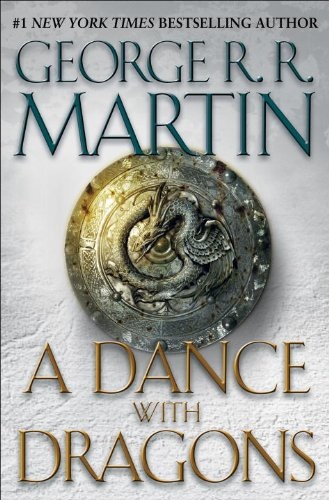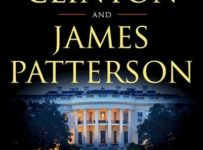
I didn't expect that at the end of the available volumes of A Song of Ice and Fire I would feel like I had run headlong into a brick wall, but that is exactly what happened. I don't want to sound overly dramatic here but, while A Dance With Dragons is more of a "complete†book than A Feast For Crows (in that it covers more characters), it's less satisfactory. A Storm of Swords still stands as the single most delightful entry in this canon.
Enough quibbling, though: is A Dance With Dragons any good? Keeping in mind that I only had to wait one week for it rather than six years, I'm going to say that yes, it is. On reflection, its three main characters get three complete story arcs that naturally bleed into the next part of the story. It's just that, given its eighteen different points of view, a lot of the work that Martin performs between these pages is simple shuffling of pawns across the board so that they may be in place for greater things. None of which happen here.
Contains spoilers for volumes 1-4, not for A Dance With Dragons itself!
Daenerys discovers that being the conquering queen of a horrible city of ingrates in a foreign land isn't as easy as it might appear, even for the blood of the dragon. Tyrion sails across the sea to find himself in the service of Illyrio Mopatis, to serve as an advisor to the dragon queen. On the wall, Jon Snow attempts to convince the Black Brotherhood and the wildlings that the situation they previously had is no longer tenable in the face of a greater enemy.
These are the three main threads, but there are developments on other fronts besides: Martells, Greyjoys, Davos and Bran all get their say, and we hear from a few other characters from A Feast For Crows besides.
Given that Martin split these last two books geographically, you'll be forgiven if you're disappointed in the character balance on show. Some might argue that Jon, Tyrion and Daenerys are the best characters (and they are), but Westeros is where everything happens. People only use the other parts of the world as mustering points. Tyrion and Daenerys are both working so far away from the main action that they may as well be running their own games – which is of course exactly what they're doing.
Tyrion is more shaken by his patricidal actions than I would have suspected and, like his sister before him, briefly flirts with alcoholism. The concept of his storyline is thrilling, but of course nothing is supposed to work out for him. He gets a nice tour but that’s all that can be said of the poor sod, Martin’s punching bag for this outing.
Jon Snow, on the other hand … No complaints about him. And the rest of the Northern scenes are similarly good, although I was shamefully slow at realising what was going on in them. To go into much more information would come too close to spoiler territory, and that's for another article later in the week.
I’ve long been a Dany booster, but she carries too much of this book on her shoulders, and nothing goes smoothly for her. I think that a large part of this is because she’s made a huge mistake that she’s too slow in realising: she settled down. Her nomadic lifestyle of razing her enemies has given way to governing, which is something that frustrates both her and the readers: she wears too many literal chains and the book comes to a halt because of them. This is what comes of Martin proposing something really cool as a character’s final moment in one book, and then having to follow it up with harsh reality in the next.
Queendom of a society that you will not attempt to understand – indeed, one that does not seem worthy of your understanding –  is never going to go well. She is just a young girl, innocent of occupation and domination, but even she knows that. (As this is a fictional society I'm allowed to say this. In the modern world you generally shouldn't try to conquer and occupy a foreign nation and impose your own value system on it).
It is only when she is allowed to break out of that stagnation, and when her story is realised through some other strategically placed characters, that things pick up. Of course, by that point, her involvement in the book is almost over and we need someone else to pick up the slack.
Quite apart from all of this, Daenerys was always intended to be part of the books rather than the body of them. Martin did legitimately hamstring himself in splitting his work in two, but at the same time some of the trickle down between the two wouldn't have worked near as well. A Feast For Crows, after all, had some really good set up that would have been rendered pointless by a too soon reveal if the chronological plan had been maintained.
Surely Martin would have worked around it, but still: this is like reading a book of important stuff that exists largely as supplementary to the main story. The machinations of this book will doubtless prove vital to the overall series, but it's hard to see a lot of it as essential just yet.
I suspect that A Dance With Dragons will be a much better book when The Winds of Winter is published (whenever that may be – you know that, after last time, Martin will not make any promises until the whole thing is finished). Books like A Dance With Dragons work best when they have a succeeding book to bridge across to – so all of this build up will eventually be paid off. I don't regret reading A Dance With Dragons but I'm not yet at the point where I can relish having read it. Give me a few years.


